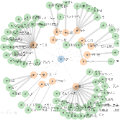Large Language Models (LLMs) have achieved impressive reasoning abilities, but struggle with temporal understanding, especially when questions involve multiple entities, compound operators, and evolving event sequences. Temporal Knowledge Graphs (TKGs), which capture vast amounts of temporal facts in a structured format, offer a reliable source for temporal reasoning. However, existing TKG-based LLM reasoning methods still struggle with four major challenges: maintaining temporal faithfulness in multi-hop reasoning, achieving multi-entity temporal synchronization, adapting retrieval to diverse temporal operators, and reusing prior reasoning experience for stability and efficiency. To address these issues, we propose MemoTime, a memory-augmented temporal knowledge graph framework that enhances LLM reasoning through structured grounding, recursive reasoning, and continual experience learning. MemoTime decomposes complex temporal questions into a hierarchical Tree of Time, enabling operator-aware reasoning that enforces monotonic timestamps and co-constrains multiple entities under unified temporal bounds. A dynamic evidence retrieval layer adaptively selects operator-specific retrieval strategies, while a self-evolving experience memory stores verified reasoning traces, toolkit decisions, and sub-question embeddings for cross-type reuse. Comprehensive experiments on multiple temporal QA benchmarks show that MemoTime achieves overall state-of-the-art results, outperforming the strong baseline by up to 24.0%. Furthermore, MemoTime enables smaller models (e.g., Qwen3-4B) to achieve reasoning performance comparable to that of GPT-4-Turbo.
翻译:暂无翻译




